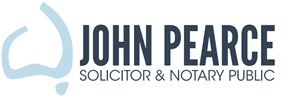Office practice concerning witnesses
JOHN PEARCE, a Solicitor and Notary Public, has notarised thousands of Powers of Attorney (POAs) for use in the Republic of India.
Unless there are exceptional circumstances, clients are required to bring to their appointment a POA which has been already prepared in India according to Indian requirements. In other words, only as a last resort would this office prepare a POA for production in India – if we do so, we cannot guarantee that the duly signed and notarised POA will be acceptable in India.
Prior to attending THE OFFICE OF JOHN PEARCE SOLICITOR & NOTARY PUBLIC, clients should make a concerted effort to ascertain from the relevant Indian authorities their requirements for completing the POA. In some cases there is a multitude of requirements as to: the size of paper; the colour of paper; the need for stamped paper; the need for a photo of the Executant and/or the Attorney, the need for a thumbprint, an attested passport page to be included with the POA, witnesses other than the Notary; an Apostille stamp from the Australian Department of Foreign Affairs and Trade; and stamping by the Indian Consulate/VFS Global.
In particular, in some cases there is a requirement that two witnesses attest the POA as well as the Executant and the Notary. Usually the witnesses are required to provide their name and address.
During Business Hours THE OFFICE OF JOHN PEARCE SOLICITOR & NOTARY PUBLIC can arrange for office staff to be witnesses. In such cases, the designated address of both witnesses is: THE OFFICE OF JOHN PEARCE SOLICITOR & NOTARY PUBLIC. Office witnesses do not provide a copy of an identity document. Nor do they provide names of spouses or parents. In the vast majority of cases, the provision of the name and office address of each witness has been entirely acceptable.
But in a few instances, POAs which have had the witnesses’ address as our office, and not their private residential address, have been rejected in India.
Therefore, be aware of our office practice, and in cases where you require private addresses for witnesses, you need to bring your own witnesses to the appointment. Of course, if your appointment is not during Business Hours, you need to bring your own witnesses if these are required. Nevertheless, in our opinion the requirement for the private residential address of witnesses is ill-conceived. Surely the purpose of requiring the name and an address of a witness is that the witness is identifiable and traceable? Moreover, the practice of Australian Law Firms having their staff act as witnesses on a regular daily basis, with the office address provided, is of long-standing. When a staff member of a Solicitor’s office witnesses a document, including a Will, it is entirely appropriate that the address given for the witness is the office address of the law firm. So too, where the Solicitor is also a Notary Public, the same longstanding practice should be acceptable in India. But it is not so in all circumstances:
YOU NEED TO CHECK WITH THE RELEVANT AUTHORITIES IN INDIA AS TO THEIR REQUIREMENTS.
Office practice concerning the impressing of the Official Notarial Seal
In all cases it is imperative that there be details as to the date of the notarisation, and where in the world it took place. Moreover, the person who notarised the document needs to be identifiable and traceable – hence the requirement for the Notary’s name and office address.
Therefore, the requirements are:
- Firstly, notarial witnessing comprises the affixation of the Notarial signature and stamp (which gives the name of the Notary, the fact of being a Notary Public, and the office address), as well as the date of notarisation.
- Then the witnessing requires that the Official Notarial Seal be impressed on the relevant part of the document. The impressing of the Notarial Seal is usually targeted over a wafer/sticker, but where there is no room to fit a wafer/sticker, this is not used and the impressing of the Seal is made directly on a relevant part of the document. In this regard, it is a nonsense to require that there be a wafer/sticker on a particular document. The wafer/sticker only serves as a focus to direct the eye to where the Notary has impressed the Notarial Seal. Indeed, even if a wafer/sticker is used, it is not required to be red – some Australian Notaries use gold or silver wafers/stickers. This office usually uses red wafers/stickers.
- If there are several pages to a document which needs to be notarised, these are bound by the Notary in a variety of ways. The OFFICE OF JOHN PEARCE SOLICITOR & NOTARY PUBLIC usually uses a red ribbon to bind the pages of the document, but other Notaries have other legitimate practices.
